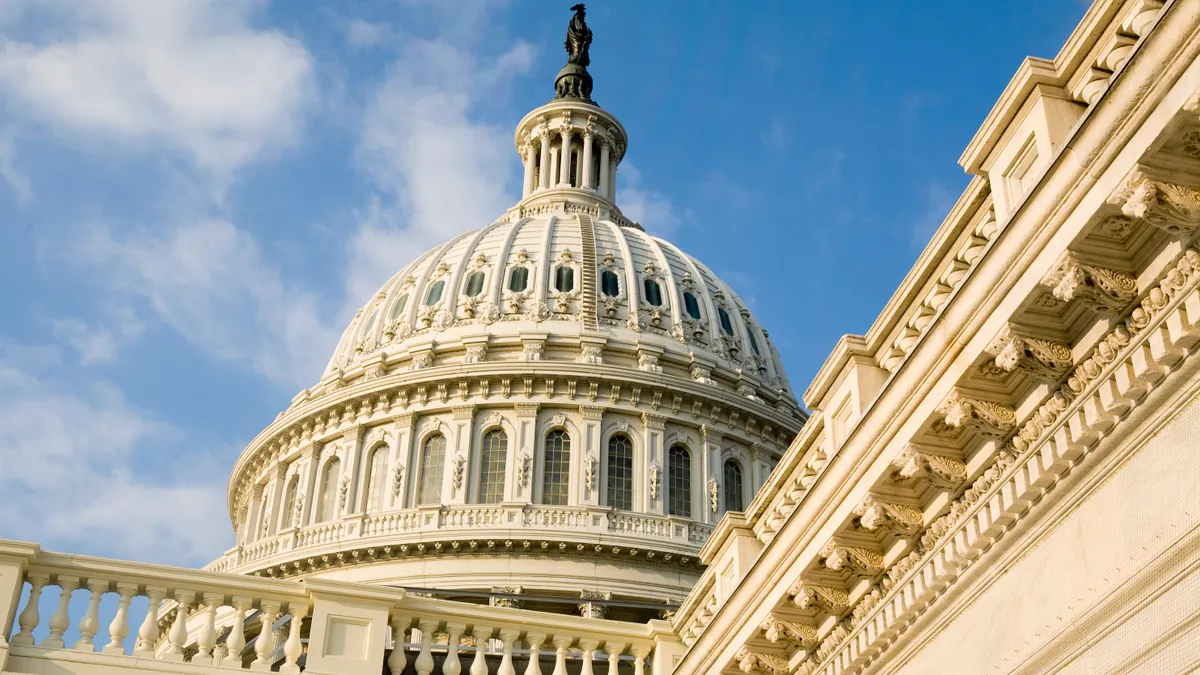Dive Brief:
- House Republicans aired frustrations with the Biden administration’s policies around the federal student loan system during a stormy hearing of the Subcommittee on Higher Education and Workforce Development on Wednesday.
- Republicans blasted James Kvaal, the U.S. Department of Education’s top higher ed official, as well as Richard Cordray, head of the Office of Federal Student Aid, during the hearing, the second in a series examining the administration’s actions.
- Those lawmakers questioned the fairness of initiatives like President Joe Biden's plan to forgive mass amounts of student loan debt and accused officials of withholding information from Congress about the administration's student loan and other policies.
Dive Insight:
Policymakers across the political spectrum have expressed a desire to rework the federal student loan program, whose portfolio has ballooned to more than $1.7 trillion as college costs soared.
However, they deviate on party lines on the best way to accomplish this. While Republicans have pitched policies like dropping loan forgiveness plans and capping graduate student loans, the Biden administration has aggressively moved to cancel student loan debts, even outside of the mass forgiveness proposal.
Several lawmakers during Wednesday’s hearing argued against the loan forgiveness plan, which would forgive mass amounts of federal student debt for borrowers earning up to $125,000 a year. The Biden administration says the plan will primarily benefit low- and moderate-income borrowers.
This has rankled Republicans, who argue the debt forgiveness programs are mere handouts and unfair to those who worked to pay off their student loans or never enrolled in college.
Lawmakers also criticized the continued pandemic-era pause on federal student loan repayments, enacted during the Trump administration. It is due to expire 60 days after either the end of June, or after the Supreme Court rules on the loan forgiveness proposal, whichever comes first. The Supreme Court is due to rule on the plan imminently.
The House voted largely on party lines on a resolution Wednesday that would restart loan payments and nullify the mass loan forgiveness plan.
Some Republicans said during Wednesday’s hearing that Biden officials have done a poor job of communicating to students, families and loan servicers about restarting payments.
In one fiery exchange, Rep. Virginia Foxx, a North Carolina Republican and chair of the House’s education committee, accused Kvaal and Cordray of putting the fallout of bad policymaking on loan servicers and other parties, like Congress.
“At this point it feels less like incompetence and more like an intentional ploy to break the student loan program,” Foxx said.
Cordray said the administration had no incentive to break the student loan system. He and Kvaal said they would take personal responsibility if lifting the repayment freeze goes south.
Foxx also alleged that Education Department staff had withheld a report detailing the cost of some of the changes to the loan system. Kvaal told Foxx he believed the department had provided lawmakers an unredacted copy of that report. “Are you sure?” Foxx replied.
“I think you might need to get better information from your staff,” Foxx said.
Meanwhile, the subcommittee chair, Utah Republican Burgess Owens, asked whether the department felt that all institution types — public, private, nonprofit and for-profit — deserved the same level of oversight. He said it appeared the executive branch was targeting for-profit colleges.
The Education Department drew this criticism recently after releasing a regulatory plan known as gainful employment, which would evaluate whether graduates of colleges’ career programs could pay off their student loan debts and earn more than typical high school graduates in their states. Programs that fail to meet these requirements could have their federal funding yanked under the proposal.
Democrats during the hearing largely defended the Biden administration’s actions, pointing out college costs have grown amid wavering state support.
A couple of Democratic lawmakers pointed out the Pell Grant, a major vehicle for federal financial aid, has lost much of its purchasing power, now only covering about a quarter of the costs of a four-year public college education. It previously paid for roughly three-fourths of it.











